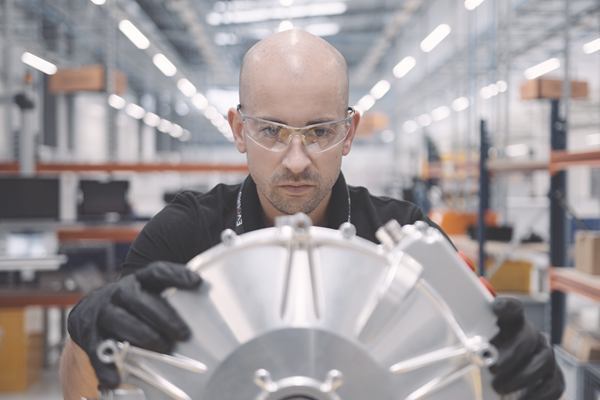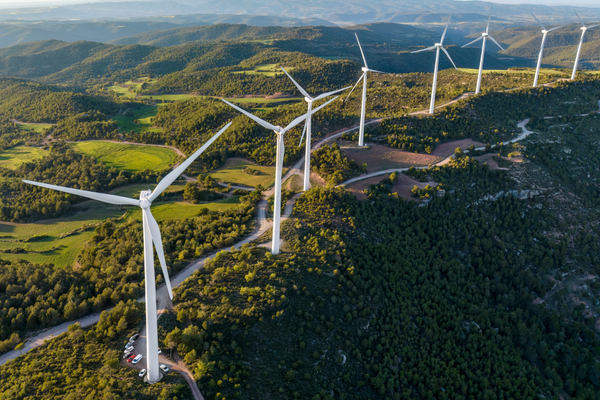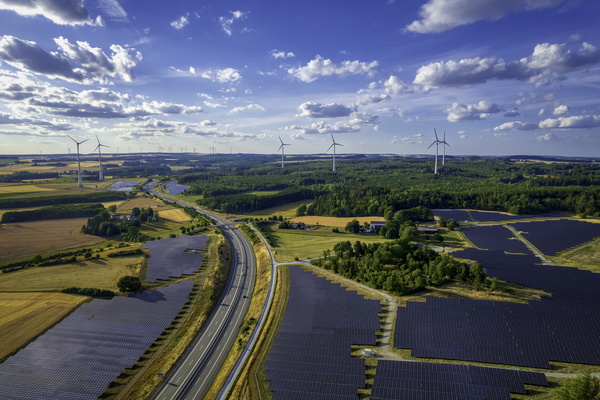A softer touch vs hardball
What role should banks play in managing a rapid and safe transition to a green digital economy?

Ethical banking is a rather broad and fuzzy label that can be earned by practices as varied as printing bank cards on recyclable plastic, supporting the local community or refraining from investments in weapons.
These can be important criteria when an individual or a business is deciding who to bank with but, given the urgency to curb the destructive power of climate change, are all somewhat overshadowed by something even more pertinent – a bank’s stance on fossil fuel investments.
To make a verdict on whether a bank is truly pulling its weight to reach net zero by 2050, there are two major markers to watch. One is how much money it has invested in large emitters and the other is whether it has made investments in green projects – especially energy and other emissions-related investments.
In its Roadmap for the Global Energy Sector, the International Energy Agency (IEA) estimated that clean energy investment worldwide will need to more than triple by 2030 to around $4 trillion a year to reach net zero emissions by 2050.
Although no one denies the need for huge green investments, opinions on the pace and timing of “brown” divestment vary widely. Environmentalist groups and some activist investors call for immediate divestment from assets associated with fossil fuels, while others point out the dangers of a rash transition.
BlackRock is one of the world’s largest asset management firms with $10 trillion (£8 trillion) AUM and is a staunch believer in green investments. But Larry Fink, the Chairman and CEO, is strongly against divestment from fossil fuels, arguing that if institutional investors turn away from them, someone else will take their place.
And indeed, while the pressure on banks, asset owners and pension funds is huge to divest from high emitters, national oil companies and hedge funds typically much less challenged by visibility requirements are happy to step in and cash in on sky-rocketing fuel prices.
Other unexpected negative impacts of divestment from fossil fuels may include mass dismissals in decommissioned industries or environmental damage caused by rapid decarbonising.
Transition finance and the dangers of greenwashing
Sustainability-linked loans and bonds (SLLs and SLBs) are the financial products of a more lenient approach aiming to wean high carbon emitters off fossil fuels rather than stigmatising them. They are designed to provide funds for businesses that – rather than investing in green projects – agree to link the interest they pay on their bonds to whether they’ve delivered on certain climate or sustainability KPIs.
However, there are twists to these more inclusive financing instruments. Firstly, the KPIs set by issuers tend to be opaque or have no materiality to the company’s activity, which means that investors are often out of their depth when making decisions to buy them.
Secondly, the buyers of these bonds have a vested interest in the issuer not delivering on sustainability KPIs, as this will give them a higher return – typically a coupon step-up of 25 basis points. Also, as the green-bonds principle that obliges issuers to invest proceeds in environmental projects doesn’t apply to SLLs or SLBs, it allows for the paradox of making brown or unsustainable investments with green loans.
While it’s important to see that changes on a global scale can’t happen overnight and that even the three-decade timeframe set poses an enormous time constraint, ensuring that most of the players are travelling in the right direction is crucial to success.
According to WWF and Greenpeace’s study, The Big Smoke, the UK’s finance industry is a high carbon sector with banks and asset managers responsible for financing 1.8 times the amount of the UK’s annual carbon emissions. This is an eye-opener but not completely unexpected as it is the third-largest financial sector of the OECD.
What raises more concern, though, is how little bandwidth is given to improving the situation. Fossil fuel financing was still expanding in 2020-2021. The most comprehensive global analysis on fossil fuel banking to date found that of the 44 companies examined in the study – all committed to net zero by 2050 – 27 don’t even have any meaningful non-expansion policies.
Although reports in the press might suggest otherwise, the IEA estimates that in the summer of 2020, only 1 percent of capital investments by oil and gas were for clean energy.
Meanwhile, on a more positive note, oil and gas do contribute to green innovation. According to Geoengineering Monitor, the fossil industry is a project partner in about 20 percent of known carbon capture, utilisation and storage (CCUS) projects – an industry still struggling with high costs and upscaling but showing the potential of liberating oil and gas and other high emitters from pariah status.
We would only be able to tell if current funding and divestment efforts are adequate if we could fast-forward to 2050 to see how far the current level and sincerity of the decarbonisation fervour will have taken us.
If we weren’t pushed for time, financial innovations such as SLBs or the $39.2 trillion in assets under or committed to divestment from fossil fuels as of October last year would be causes for celebration. However, climate modelling suggests we might be losing the battle for limiting global warming to 1.5 degrees.
Considering the nature of human planning, companies had better aim to overperform to eventually hit targets. Impressive figures may give us a false sense of security; to be on the safe side, we also need to monitor if funds released from fossil fuels end up in the right strategic assets.
We are all in this together. A green energy transition can not only preserve the Earth’s ecosystem and human society as we know them but also supply an energy-guzzling digital economy with green credentials.
Most Viewed
Winston House, 3rd Floor, Units 306-309, 2-4 Dollis Park, London, N3 1HF
23-29 Hendon Lane, London, N3 1RT
020 8349 4363
© 2025, Lyonsdown Limited. Business Reporter® is a registered trademark of Lyonsdown Ltd. VAT registration number: 830519543






